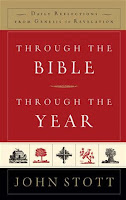
Abraham: The Paradigm of Faith
Chapter 4
Why does Paul spend a whole chapter
on Abraham as the father of faith? Why
is he the model Paul holds up for us?
William James, in his Varieties of
Religious Experience, gives us a clue when he indicates that we tend not to
see anything clearly until we see it in exaggerated form. This was the reason Flannery O’Connor gave
for peopling her stories with violent, grotesque misfits. She explained, if you wish to communicate to
those who are hard of hearing and seeing you must shout and use big
gestures. When the bible establishes a
paradigm such as Abraham, the contrasts seem exaggerated.
Paul also
employs the example of Abraham because he warrants Paul’s primary argument:
people are included into God’s family by faith!
Faith is the sole criteria of membership. The people of God cannot
require of others what was not required of the founder of their religion. The boundary markers of works, circumcision
and the law are important for Jewish self-identification in a pagan world but
they are not essential aspects to one’s relationship to God. Abraham had none of these things when first
trusted God. He demonstrated a faith
that was not law-related or church-related.
What does God really want from us?
Not primarily obedience to a law or performance of a ritual. Abram believed God and it was counted to him
as righteousness (Rom.
4:3 & Gen. 15:6). Abraham walked and
talked with God – and in that we see the essence of his relation with God. A faith relation marked by interpersonal
intimacy and trust is what God expects. It
is this kind of faith that Paul contrast with Jewish 2nd Temple piety – a piety
absorbed with works, circumcision and law.
How does the Abrahamic paradigm of faith measure up to these standards:
If religious works (vv2-8) is the
basis of Abraham’s acceptance before God then he can boast. But this is not how Abraham was
accepted. Abraham’s acceptance was not
merited; it was a gift. Abraham’s
acceptance into the divine family came by way of forgiveness not the works of
the law (contrast Ps 32 with Ps 1).
Like works, Abraham’s acceptance
preceded his circumcision (vv 9-12) therefore circumcision could not have been
a condition of that acceptance. The only
condition for Abraham (and by extension for us) is that of faith. Circumcision
is the outward validation of a prior and internal relation.
The promise (vv13-15) of world
redemption – for the goal of faith was never merely private – was predicated on
the right relationship that comes from trust (cf. 1:17).
This is why it depends on
faith. God’s purpose is universal and
requires a means that is open to all peoples.
Faith puts the promise into reach of all – and makes Abraham “the father
of many nations” (vv16-17).
Great Reversal (vv18-25)
Abraham’s faith recapitulated the sin of the first human
beings – and all their children (1:18-25). Abraham’s faith led him to trust God, even
against all odds. Such a radical trust
resulted in a deepened faith and worship of God as had not been known since the
garden.
No comments:
Post a Comment